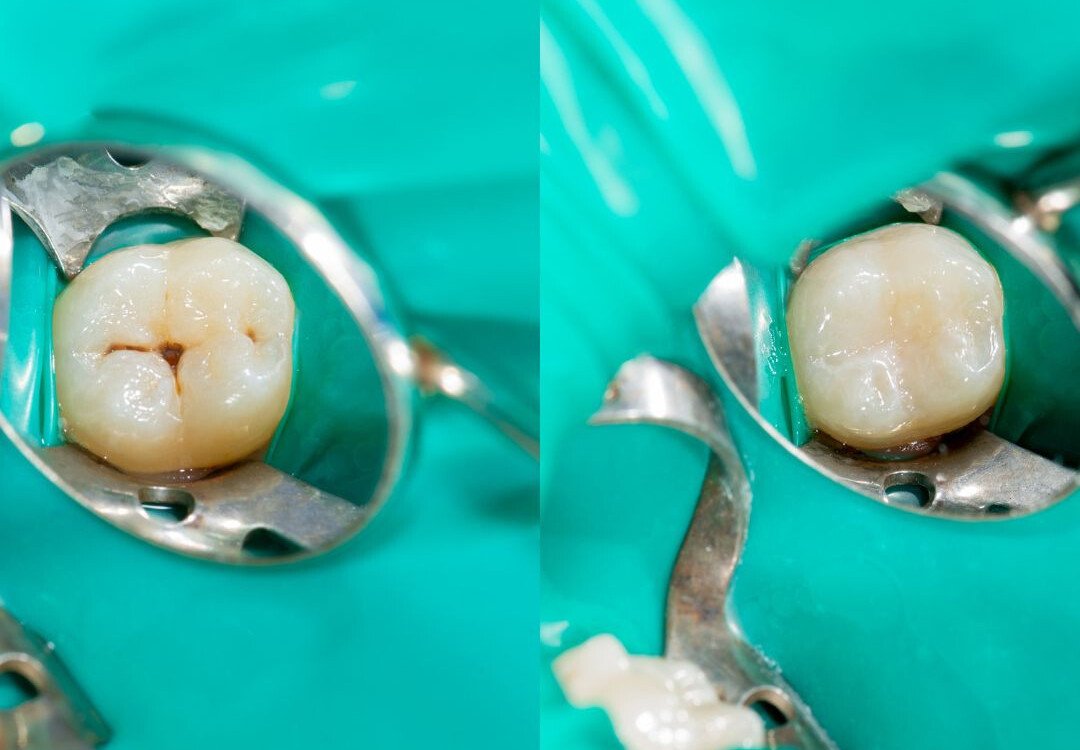In the world of preventive dentistry, fissure sealants have become a popular and effective method for protecting teeth, especially in children. However, as with many dental treatments, questions often arise about their safety. Are fissure sealants really safe? Or are there hidden dangers that patients should be aware of? In this article, we’ll explore the facts versus the myths surrounding fissure sealants to help you make informed decisions about your oral health.
What Are Fissure Sealants?
Fissure sealants are a protective dental coating, typically made from a plastic resin, that is applied to the grooves (or fissures) on the chewing surfaces of back teeth. These grooves can be deep and narrow, making them difficult to clean with a toothbrush and more prone to decay. By sealing them, dentists aim to create a smoother surface that is less likely to trap food particles and bacteria.
Fissure sealants are often used as a preventive measure in children and teenagers who are at higher risk of developing cavities. However, they can also be beneficial for adults with deep grooves or a history of dental decay.
Myth #1: Fissure Sealants Are Only for Children
Fact: While it’s true that children are the most common recipients of fissure sealants, they are not the only ones who can benefit. Adults with deep fissures or a history of dental decay can also have sealants applied. In fact, many adults are now turning to fissure sealants as part of their preventive dentistry plan.
Myth #2: Fissure Sealants Contain Toxic Chemicals
Fact: This myth stems primarily from concerns about bisphenol A (BPA), a chemical sometimes found in plastics. Some fissure sealants may contain trace amounts of BPA, but the levels are extremely low—so low, in fact, that the Australian Dental Association (ADA) and other global health organisations have declared them safe. According to studies, exposure to BPA from dental sealants is much lower than daily exposure from food, drink containers, and even dust.
Moreover, most modern sealants are now BPA-free or use formulations where the BPA is not in an active, harmful form. Dentists can also reduce any minimal BPA exposure further by cleaning and rinsing the sealant after application.
Myth #3: Fissure Sealants Don’t Really Work
Fact: Numerous studies have shown that fissure sealants are highly effective at preventing tooth decay, especially when applied early. According to the Australian Institute of Health and Welfare, children with fissure sealants have significantly lower rates of dental caries compared to those without them.
The sealants work by creating a physical barrier that blocks out food and bacteria from the grooves of the teeth. When applied correctly and monitored during regular check-ups, they can last for many years—sometimes even up to a decade.
Myth #4: Fissure Sealants Are Painful to Apply
Fact: Applying fissure sealants is a completely non-invasive and painless procedure. There’s no drilling, no anaesthesia, and no discomfort. The tooth is cleaned, dried, and the sealant is painted onto the surface. A special light may then be used to harden the material. The entire process usually takes only a few minutes per tooth.
This makes fissure sealants particularly well-suited for children or anyone anxious about dental procedures.
Myth #5: Sealants Replace the Need for Good Oral Hygiene
Fact: While fissure sealants are a valuable tool in preventive dentistry, they are not a substitute for regular brushing, flossing, and dental check-ups. Sealants protect only the chewing surfaces of teeth, and decay can still occur in other areas.
Maintaining a good oral hygiene routine is essential. The sealants work best as part of a broader preventive strategy that includes diet, fluoride use, and professional dental care.
Are There Any Risks?
Like any dental treatment, fissure sealants are not entirely risk-free. The most common issues are sealant loss or wear over time, which may require reapplication. In rare cases, some individuals may experience an allergic reaction to the materials used, but this is uncommon and usually mild.
Overall, the risks are minimal, especially when compared to the potential benefits of reducing tooth decay.
The Role of Preventive Dentistry
Preventive dentistry is all about taking steps to avoid oral health issues before they become serious. Fissure sealants are a cornerstone of this approach. By acting early, dentists can help patients avoid more complex and costly treatments later on, such as fillings, root canals, or extractions.
In Australia, public dental programs often include fissure sealants as part of school dental health initiatives. Private dental clinics also offer sealants as a standard preventive service.
Summary
So, are fissure sealants safe? The overwhelming consensus from dental professionals and researchers is yes. When used appropriately, fissure sealants are a safe, effective, and affordable way to protect teeth from decay. Myths about toxicity, pain, and ineffectiveness are largely unfounded and not supported by scientific evidence. As with any dental treatment, it’s important to discuss your options with a qualified dentist. Whether for your child or yourself, fissure sealants could play a key role in your preventive dentistry plan—helping you maintain a healthy, cavity-free smile for years to come.
